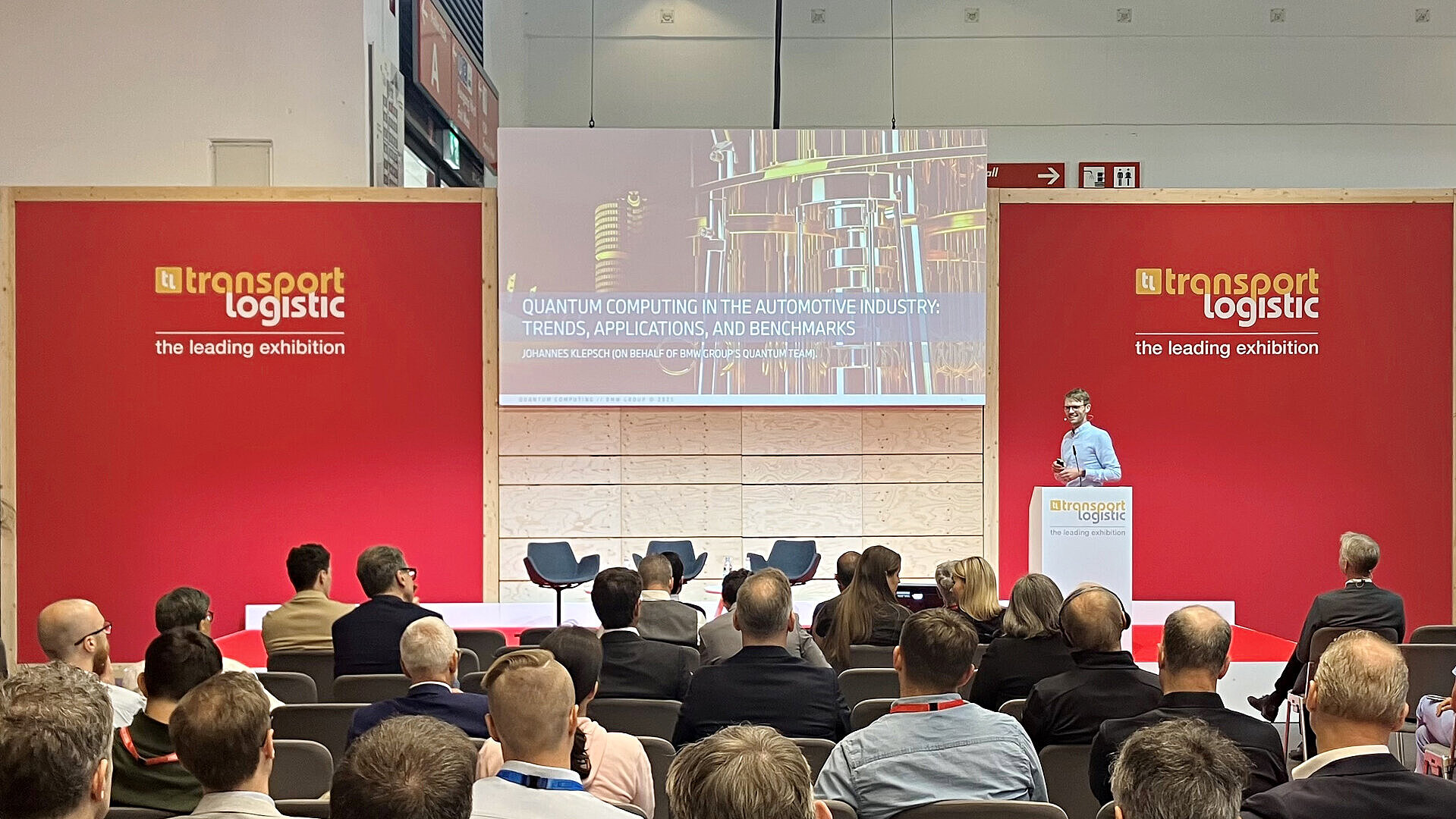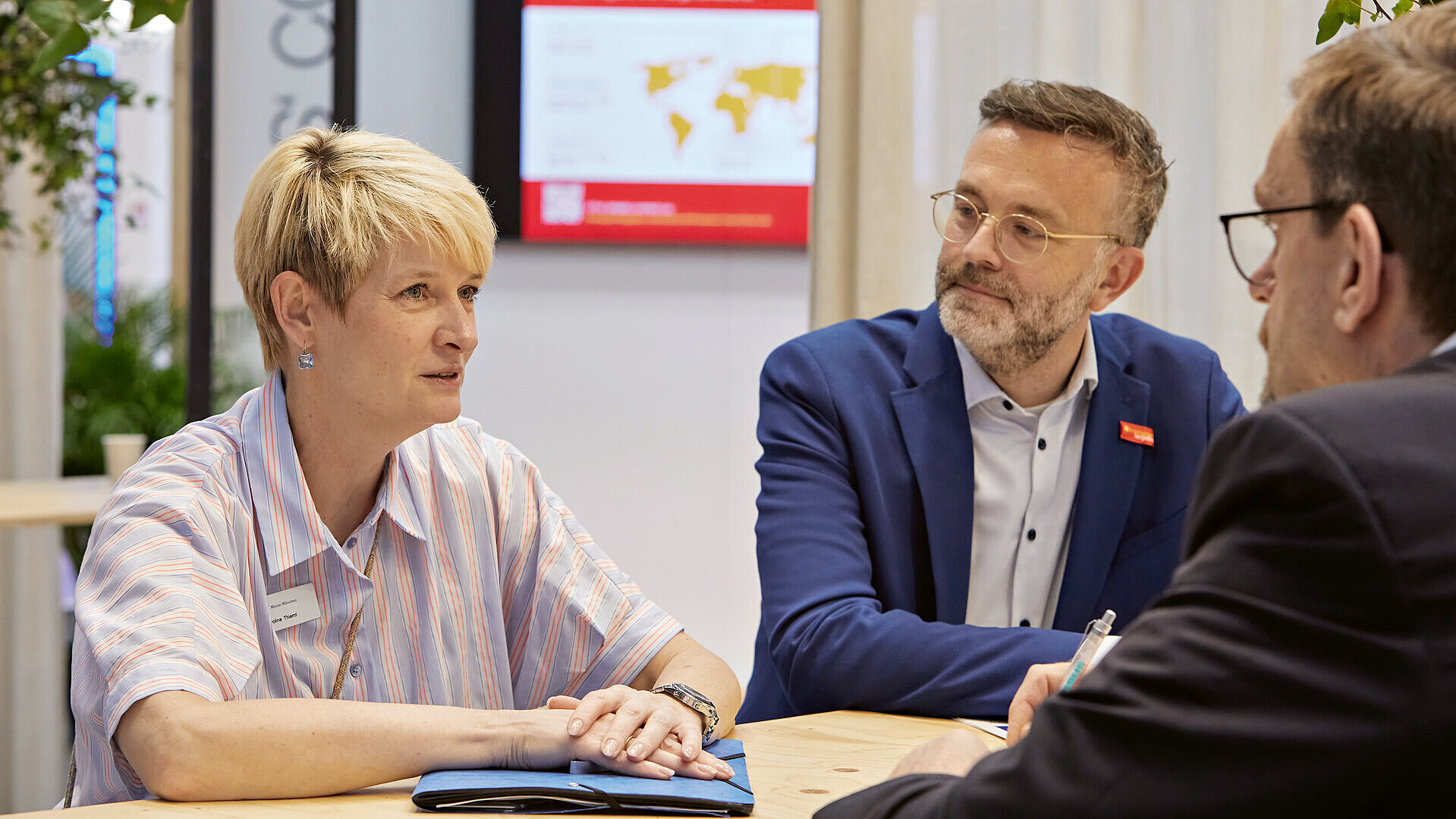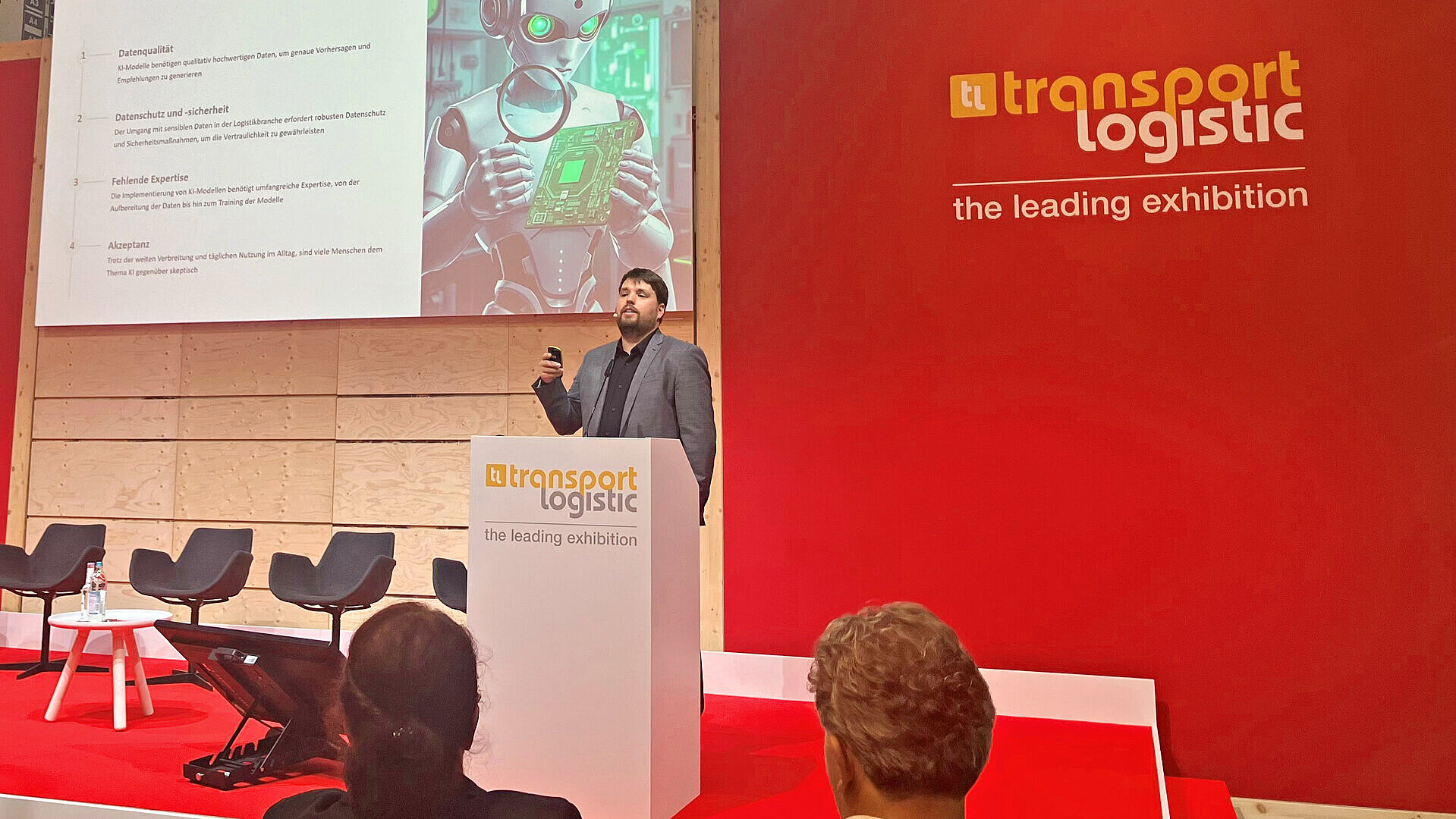
Expectations for quantum computers are high

For many, quantum computing is still a buzzword with a science fiction feel to it. But the technology is gaining momentum on its way to industrial application. This became clear in three specialist presentations at transport logistic, which took place in Munich this week. It could once again be a game changer for the logistics industry – in terms of planning, optimisation and security.
However, much of this is still a long way off: ‘Quantum computers are not yet ready for industrial applications,’ clarifies Sebastian Luber, Senior Director Technology & Innovation at Infineon Technologies. But the foundations have been laid and preparations are in full swing. The area of IT security is particularly sensitive. Traditional encryption methods such as RSA and ECC will be considered vulnerable in the future. ‘That's why we are already working with post-quantum cryptography,’ explains Luber. The first security certificates are already available and standards are in preparation. ‘Microsoft and other tech giants are also switching over, and the pressure is growing.’
Completely new computing logic
But what exactly is quantum computing? Manfred Rieck, VP Individual Solution Development at DB Systel, explains the principle as follows: ‘While classic computers only calculate with zeros and ones, quantum bits, known as qubits, can assume both states simultaneously through superposition.’ This enables a completely new computing logic. In addition, the phenomenon of entanglement plays a central role, whereby the state of one particle directly influences another. ‘No one knows exactly why it works – but it does,’ says Rieck.
These quantum physical effects can already be exploited, albeit only on a small scale. ‘We're not looking at the hardware, but at applications,’ emphasises Rieck. Initial tests at Deutsche Bahn show how quantum-inspired systems can be used to optimise timetables. One problem is the many variables – such as maintenance cycles, clock frequencies and route availability – that make optimisation complex. Traditional methods such as operations research reach their limits here.
A pilot project with a so-called Anila system, a special quantum optimiser, showed that even 5,000 qubits were not enough to completely solve the problem. Nevertheless, the goal of finding out whether such systems are fundamentally suitable was achieved. In parallel, work is underway on hybrid solutions that combine quantum and high-performance computers (HPC). Rieck: ‘We don't expect quantum computers to replace everything. There will be interaction.’
Great potential for complex processes
For Johannes Klepsch, Product Owner Emerging Technologies at BMW, the practical benefits are also paramount: ‘We're not building quantum computers – we want to use them.’ The exponential increase in computing requirements, for example due to AI models or in-vehicle software, is forcing us to think about new paradigms. He sees the most exciting applications in four areas: artificial intelligence, materials simulation, security issues and, above all, optimisation. There is huge potential, especially in complex processes such as press shop and assembly strategies or route planning for robots.
According to Klepsch, quantum-inspired algorithms have reduced processing times in a manufacturing process by ten percent. ‘That may not sound like much, but in automotive production, it's enormous.’ Although this was not yet true quantum computing, it shows how preparing for this technology can already have measurable effects.
Another example is the optimisation of press shops and supply chains between individual production sites. ‘This is a huge mathematical problem,’ says Klepsch. Although current quantum solutions have not been able to reduce calculation times, precise problem formulation has enabled classic software tools to work much better at solving optimisation and other mathematical tasks. The quantum approach is therefore already helping to achieve better results today.
Klepsch also sees great potential in the field of synthetic data generation, for example for training AI: ‘A quantum computer is ultimately a complex random number generator that can be specifically influenced.’ In theory, this allows realistic data to be simulated when real data is missing or cannot be used for data protection reasons.
Expectations are high in the long term. ‘If we succeed in solving the underlying systems of equations efficiently on quantum hardware, we could revolutionise complex flow simulations in vehicle development,’ Klepsch is convinced. A lot of basic research is still ongoing, but the direction is clear.
The hype surrounding quantum computing is real, but not all expectations will be fulfilled. ‘We must be careful not to make the same mistakes we made with the AI hype 20 years ago,’ warns Klepsch. It is crucial to make a clear distinction between research and productive use, while still preparing for the future at an early stage. (rok)



